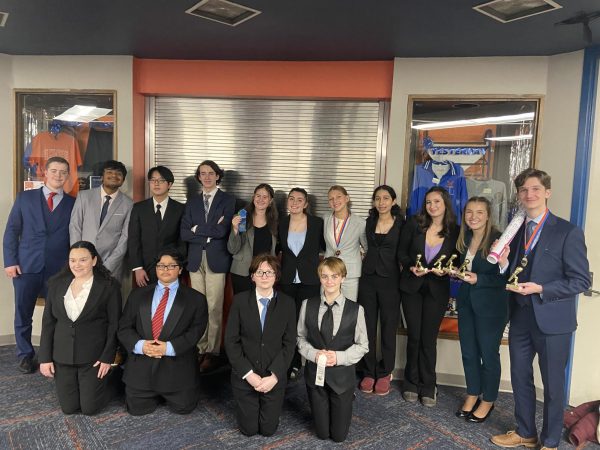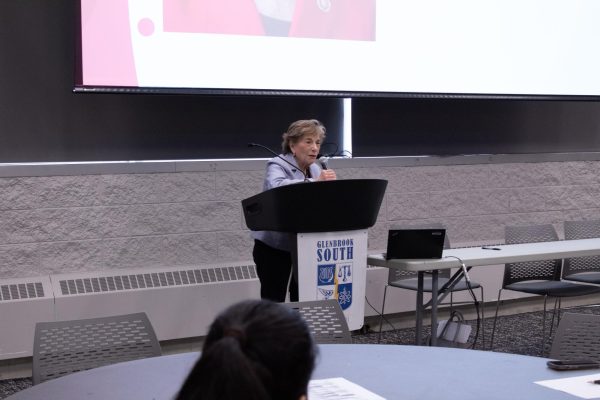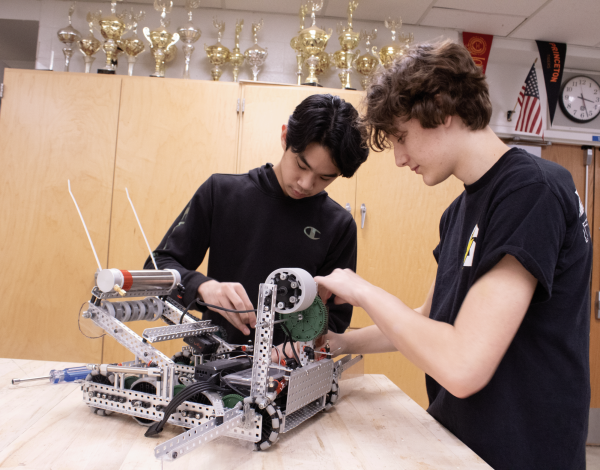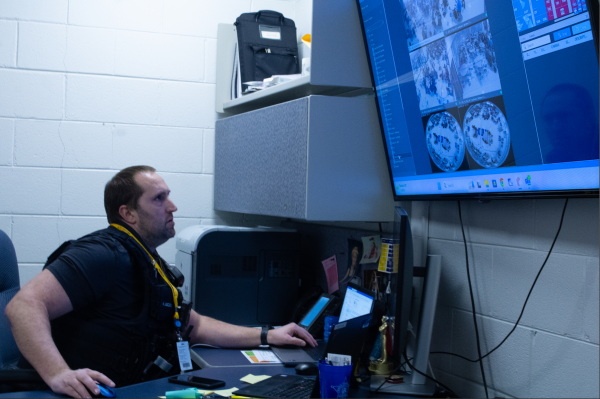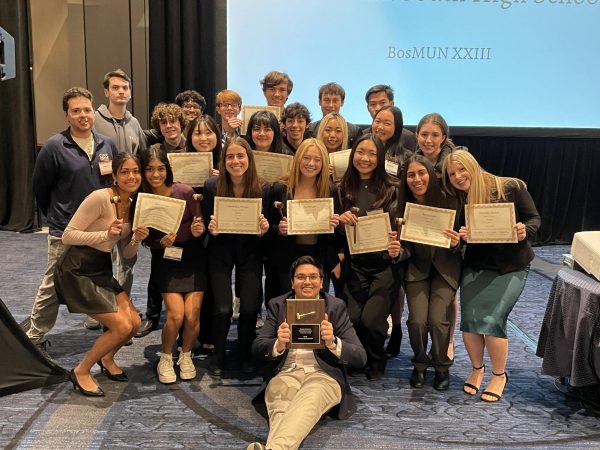Students’ rights debated at Supreme Court
February 12, 2021
Caroline Ohlandt and Anna Marquardt
In the past, the South community has witnessed several instances of hate speech by students while off-campus, forcing the District 225 administration to decide whether or not it is right to punish these students or address these issues publicly.
However, South has not been the only school that has faced these situations. The repercussions from Mahanoy Area School District’s decision to suspend a student has the potential to impact schools all around the nation. Mahanoy Area School District v. Brandi Levy is a current case being heard in the U.S. Supreme Court after an incident that occurred in 2017, when freshman Brandi Levy took to social media to express her resentment toward her school after not making the varsity cheerleading team. The school suspended Levy from the team for the remainder of the year, but believing her First Amendment right of free speech was violated, she sued the school, The New York Times reported. If the courts rule in favor of Levy, the way schools handle students’ actions outside of school will be affected.
Jeannie Logan, instructional supervisor for social studies, emphasized how social media has been the source of many of these issues. She recognized that although not all incidents take place on school grounds, social media allows them to be brought into and affect the school atmosphere.
“Social media has blurred the distinction between what takes place ‘on’ or ‘off’ school grounds,” Logan said.
In a certain incident that occurred earlier this year, news of a homophobic slur said by a South student off-campus spread through social media to hundreds of thousands of viewers across the country. Principal Dr. Lauren Fagel explained that South received thousands of emails and voicemails on behalf of the victim. Fagel recognized the gravity of the situation at hand, but felt there was not much the school could do since the issue occurred off of school grounds.
“People are quick to assume that I was choosing not to do something, without thinking about if I had the legal right to,” Fagel said.
Fagel expressed that in many of these situations, the district is put in a very difficult position, because the community often looks to the school to solve problems that could otherwise be dealt with privately by parents.
“I think there has to be a line where the school’s responsibility ends and the parent’s responsibility begins,” Fagel said.
Brandi’s father, Larry Levy, thinks similarly. Although he was unhappy about what his daughter had said about her school, he would have preferred to handle punishment on his own.
“I felt that the school overstepped their boundaries and it was my decision to punish her,” Larry said in an interview with CNN. “I [took] the appropriate steps I felt necessary.”
Senior Garrett Kramme agreed that some matters should be handled by parents, but believes if an issue is severe enough, the school should intervene.
“It depends on who it affects,” Kramme said. “If a student is being harmed by the [words of another student] then the school has the right to crack down on them.”
Regarding the Mahanoy Area School District v. Brandi Levy case, Kramme feels that the repercussions toward the student were unwarranted. He feels that although her post was rude to the school, it was not harmful to any specific students, making it unnecessary for the school to intervene.
However, junior Carter Oberbroeckling thinks the disciplinary action taken in this case was justified. He feels it is okay for students to be suspended from extracurriculars, but any further action is unnecessary. Oberbroeckling said that in general, what is said by students off-campus does not deserve punishment by schools.
“I don’t think that schools should be involved in our lives except for school grounds,” Oberbroeckling said.
District 225 Superintendent Dr. Charles Johns understands the gravity of the Mahanoy Area School District v. Brandi Levy case. He has been involved in dealing with similar issues over the course of his career.
“The Supreme’s Court final ruling on this particular case has the potential to impact the way public schools across the country operate when it comes to addressing certain situations,” Johns said. “Our legal partners will be providing us with interpretations on how to implement the rulings.”
Johns said that each situation at South is managed differently depending on the severity and the impact on the student body. He said that District 225 is focused on considering each side of the story for every situation.
“The legal standard for school action is [if] the off-campus behavior causes a substantial disruption,” Johns said. “Regardless of whether a situation requires disciplinary action, District 225 will address situations as they present themselves.”
A consensus for the Mahanoy Area School District v. Brandi Levy case was reached on Jan. 8, 2021 and certification was granted to the case. Oral arguments will be heard sometime in the 2021 term. This ruling has the potential to influence schools nationwide. Johns emphasized that the district’s goal is to do what is best for students.
“Our key mission is to find the ‘teachable moment’ so that all parties can emerge with a common understanding,” Johns said.





